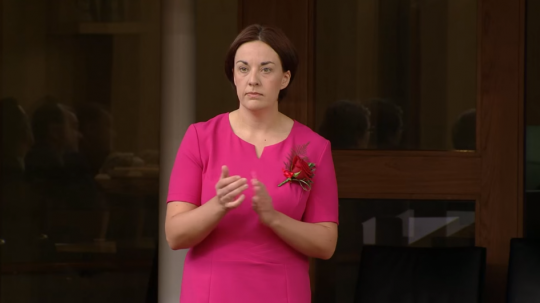Courts will be given new powers to throw out legal claims from powerful businesses and individuals used to silence critics. Justice secretary Dominic Raab announced measures last month to make it harder to bring defamation or privacy lawsuits against reporters and publishers in English and Welsh courts.
These lawsuits, known as strategic lawsuits against public participation (Slapps), aim to “intimidate” journalists and writers who face “financial ruin” if they do not retract stories, said the government.
The test will include an assessment of whether a case is in the public interest and if it has a realistic chance of success. If not, judges will have powers to dismiss cases at an earlier stage.
The move follows several recent cases brought by Russian oligarchs against publishers in the UK, such as Roman Abramovich’s libel case against journalist Catherine Belton over text in her book, Putin’s People.
“We won’t let those bankrolling Putin exploit the UK’s legal jurisdiction to muzzle their critics. So today, I’m announcing reforms to uphold freedom of speech, end the abuse of our justice system, and defend those who bravely shine a light on corruption,” Raab said.
The government has also proposed capping costs for those defending themselves against a lawsuit. Media outlets have said that they had had to pay hundreds of thousands of pounds before cases even reached court. Such ‘high costs’ have had a “chilling effect on freedom of speech”, it said.
Many defamation cases are not considered to be Slapps, but they still have implications for human rights.
What is defamation?
Recent high-profile defamation cases have captured the news agenda, from last month’s ‘Wagatha Christie’ verdict to the Duke of Sussex’s win against the Mail on Sunday’s publisher.
Defamation is when an individual or company sues a person or publisher on the grounds that they published a false statement that damaged their reputation. Libel is when alleged defamation takes a written form, such as a story in a newspaper. In most cases, defamation trials will take place without a jury.
In England and Wales, a statement can only be considered defamatory if it is judged to cause ‘serious harm’ to the person bringing the claim, or cause a company ‘serious financial loss’. The threshold was brought in under the Defamation Act 2013 to clamp down on “trivial claims”.
The person being sued can defend themselves against defamation on the basis that what they reported was true or that the statement was an opinion that ‘an honest person could have held’. Certain forms of publication can also be protected from defamatory action, such as court proceedings.
The Act also created a statutory defence for public interest. This applies if the person defending the case can show that what they published was public interest, and that they believed it was in the public interest. Journalist Carole Cadwalladr recently won a case brought against her by Aaron Banks on the basis of public interest.
The burden of proof lies with the person accused of defamation, such as a journalist, to prove that what they wrote was not defamatory in England and Wales. If they cannot prove their statement was not defamatory, they face paying thousands, sometimes millions, in legal damages. The law contrasts with the US, where the person suing has to prove that the statements about them were false and damaging.
Government ministers have previously claimed that English and Welsh courts are being used for ‘libel tourism’, where international defamation claims are brought because it is considered easier to win than in other countries.
Defamation and human rights
The Defamation Act was an attempt to ‘balance’ freedom of expression, enshrined under Article 10 of the Human Rights Act, with protection of reputation, the government at the time said.
Under Article 10, freedom of expression may be subject to restrictions to uphold the protection of reputation. Preserving reputation has also been interpreted as an extension of the right to privacy under Article 8 of the European Convention on Human Rights.
Tim Crook, a professor of media and communications at Goldsmiths University and chair of professional practices at the Chartered Institute of Journalists, said that, compared with the US, British legal culture was “very controlling of freedom of expression”.
“I think it’s undermining of democracy to deny access to information to issues and to be able to debate them,” he said.
The balance between freedom of expression and privacy in the UK is “harmful” and favours privacy, he said. The Defamation Act 2013 did ‘not go far enough in resetting the balance’, he added.
“I think the situation needs to be closer to the USA with burden of proof on claimants and in public interest cases claimants only being able to succeed if they can prove actuation by malice and a reckless disregard for the truth,” said Professor Crook.
Nonetheless, Conservative MP and Helen Grant defended companies’ right to protect their reputation. During a parliamentary debate about the Defamation Bill in 2013, Grant, then a justice minister, criticised a House of Lords amendment which attempted to restrict who could bring defamation claims. She said it was important to “allow for freedom of expression while protecting the reputations of individuals”.





